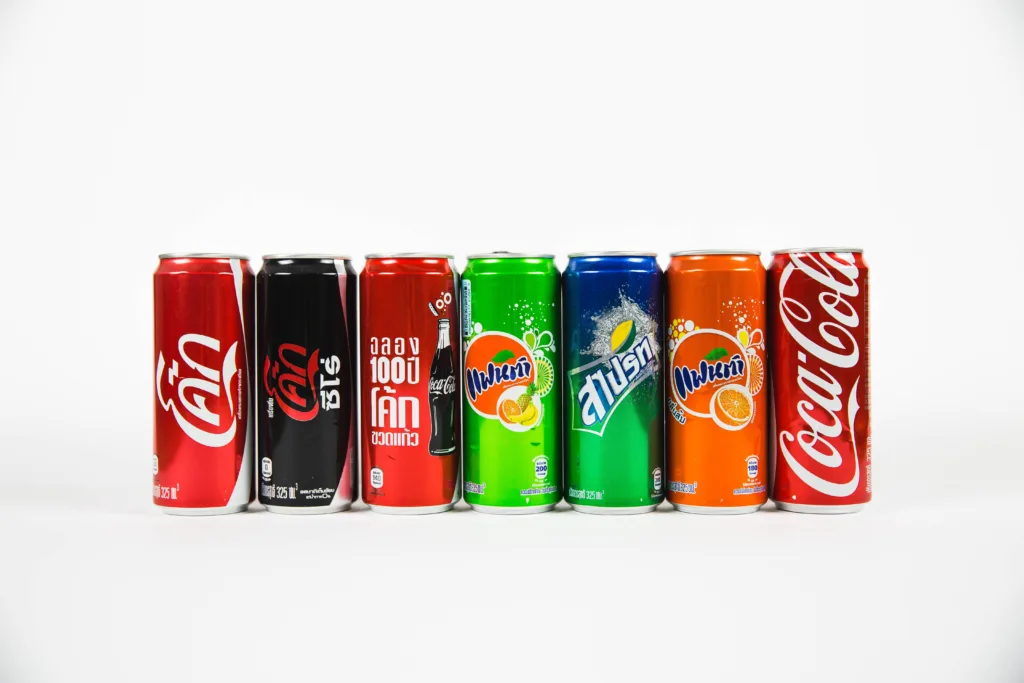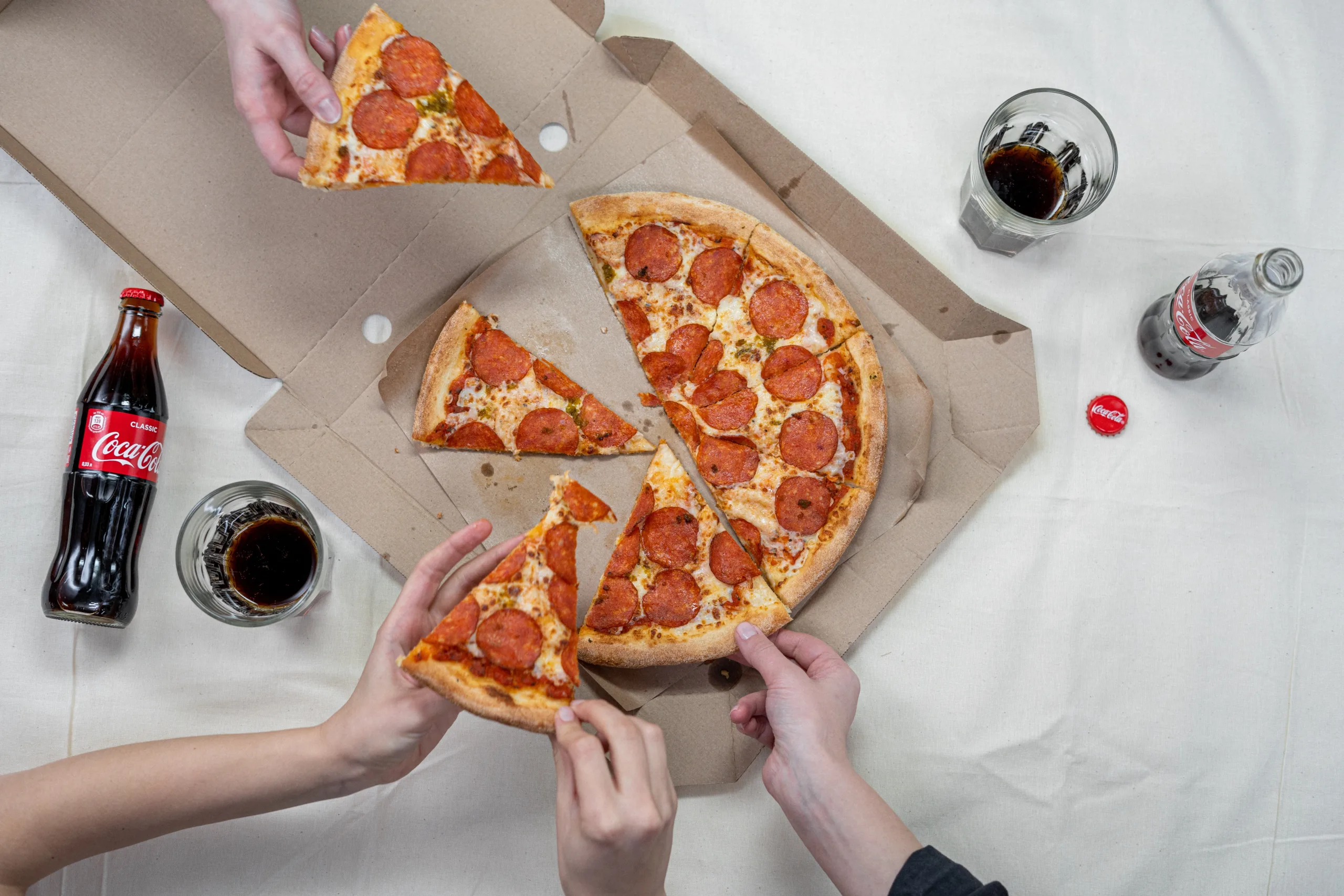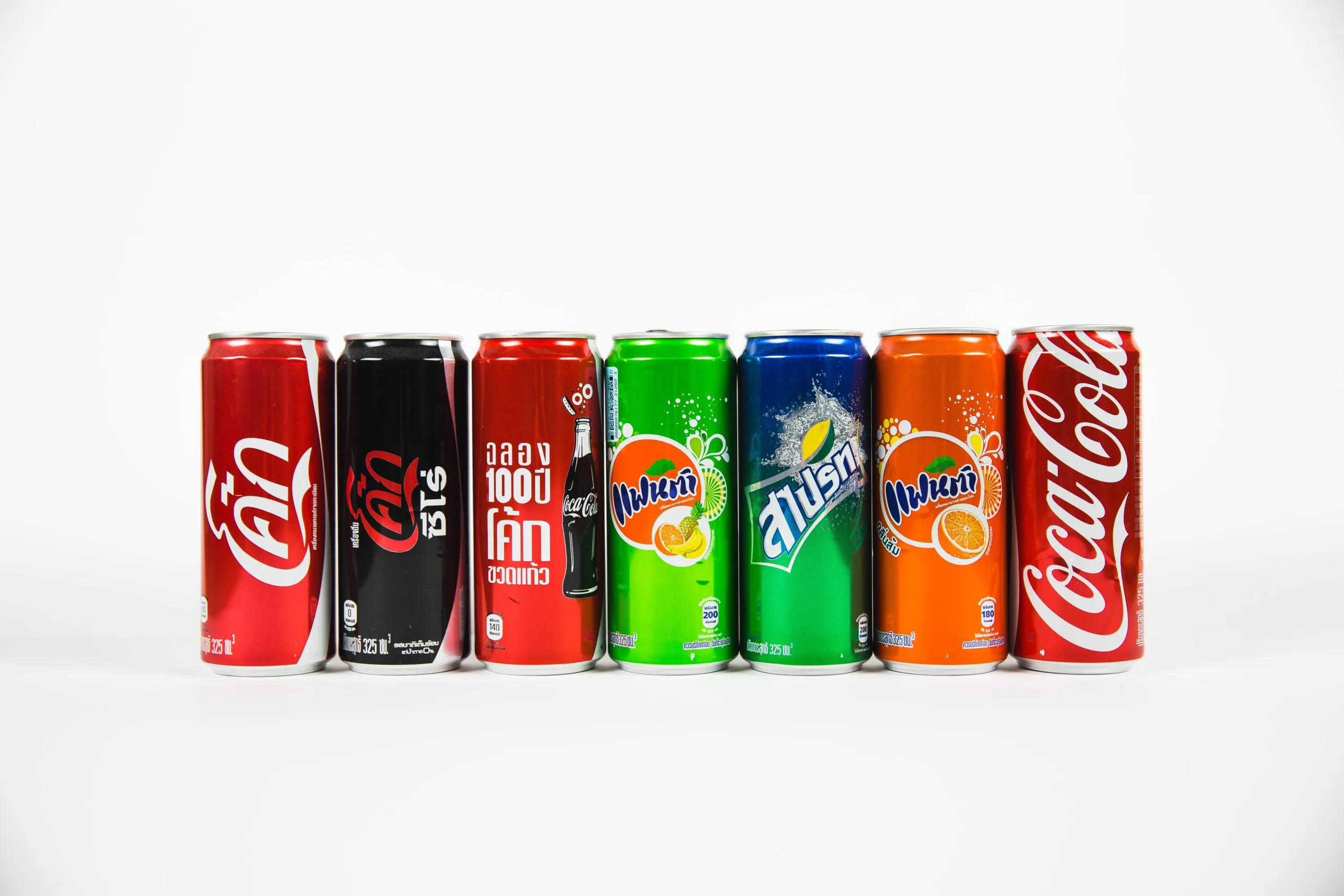In a fast-paced world where convenience is key, it’s no wonder that drinking soda and eating fast foods have become such popular choices for many people. However, with their rise in popularity comes the need to understand the potential pros and cons associated with consuming these types of foods and drinks. In this article, we will delve into the cultural impact, nutritional content, health benefits, and risks of soda and fast foods, as well as explore alternative options and provide tips for making informed choices.
Understanding the Popularity of Soda and Fast Foods
Soda has become a staple beverage for countless individuals around the world. Its refreshing taste and energizing effect often make it an appealing choice, especially on a hot summer day or during a quick break from work or school. The carbonation and variety of flavors offered by soda brands cater to different preferences, ensuring that there is a soda for everyone’s taste buds. From classic cola to fruity options, the wide selection of sodas provides consumers with a plethora of choices to satisfy their cravings.
Similarly, fast food has established itself as a go-to meal option for many due to its affordability, convenience, and the allure of indulging in comfort food. Fast food chains have mastered the art of creating meals that are both delicious and convenient.
With drive-thru options, delivery services, and quick service, fast food restaurants have made it easier than ever to grab a meal on the go. The consistent taste and familiar menu items offered by these establishments provide a sense of comfort and familiarity to consumers, making them a popular choice.
The Cultural Impact of Fast Foods
Fast food’s cultural impact cannot be ignored. It has shaped our modern diet and influenced eating habits worldwide. From the iconic golden arches of McDonald’s to the widespread popularity of pizza and fries, fast foods have infiltrated our daily lives. These foods have become ingrained in popular culture, appearing in movies, TV shows, and advertisements, further solidifying their presence in our society.
Fast food chains have also adapted their menus to suit the preferences of different regions, incorporating local flavors and ingredients to cater to diverse palates. This localization strategy has allowed fast food to seamlessly integrate into various cultures, making it more accessible and appealing to a wide range of people.
Furthermore, the convenience and speed of fast food have transformed the way we eat. In today’s fast-paced world, many individuals lead busy lives, leaving them with limited time for meal preparation. Fast food offers a quick solution, allowing people to satisfy their hunger without sacrificing precious time. This convenience factor has contributed to the widespread adoption of fast food as a regular meal option.
The Marketing Power of Soda Companies
Soda is not only a refreshing beverage but also a multi-billion dollar industry. Soda companies invest massive amounts of money into marketing campaigns that target a diverse audience, especially young individuals. With catchy slogans and vibrant commercials, these companies cultivate a strong association between consuming their products and a sense of happiness and satisfaction.
Moreover, soda companies have been successful in creating a sense of brand loyalty among consumers. Through strategic partnerships with popular events, celebrities, and sports teams, soda brands have positioned themselves as a lifestyle choice rather than just a beverage. By aligning their products with desirable qualities such as fun, excitement, and socialization, soda companies have managed to create a strong emotional connection with their target audience.
Additionally, the packaging and branding of soda products play a significant role in their popularity. Eye-catching designs, logos, and colors make soda bottles and cans instantly recognizable, further enhancing their appeal. The ability to associate specific emotions or experiences with a particular brand through effective marketing has contributed to the continued success and popularity of soda.

Photo by Jonny Caspari on Unsplash
The Nutritional Content of Soda and Fast Foods
It’s important to take a closer look at the nutritional content of soda and fast foods to gain a better understanding of what we are putting into our bodies. By examining the ingredients and hidden additives, we can make more informed decisions about our consumption habits.
When it comes to soda, many people are unaware of the excessive amounts of sugar, artificial sweeteners, and chemical additives that are often present. These ingredients may provide a temporary burst of energy, but they can have negative health effects in the long run. Regular consumption of soda has been linked to various chronic illnesses such as obesity and diabetes.
But it’s not just the sugar and artificial sweeteners that we need to be concerned about. Soda also contains carbonation, which can lead to bloating and gas. The high levels of phosphoric acid found in many sodas can also be detrimental to our health, as it can interfere with the absorption of calcium and contribute to weakened bones.
What’s Really in Your Soda?
Let’s delve a little deeper into the ingredients commonly found in soda. One of the most prevalent additives is high fructose corn syrup (HFCS), which is used as a sweetener. HFCS has been linked to obesity, as it can lead to an increased appetite and a higher calorie intake. Additionally, sodas often contain caffeine, which can have a dehydrating effect on the body and may contribute to sleep disturbances.
Furthermore, the artificial flavors and colors used in soda can have potential health risks. Some studies have suggested that certain artificial colors, such as Yellow 5 and Red 40, may be linked to hyperactivity in children and allergic reactions in some individuals.
The Hidden Ingredients in Fast Foods
Now, let’s turn our attention to fast foods. These convenient meals are often associated with high fat, sodium, and calorie content. They are typically made with processed ingredients and cooked in unhealthy oils, which can have detrimental effects on our health.
Fast foods also contain additives and preservatives that enhance their taste and prolong their shelf life. These additives may include monosodium glutamate (MSG), which is known to cause adverse reactions in some individuals, and sodium nitrite, a preservative commonly used in processed meats that has been linked to an increased risk of cancer.
Regular consumption of fast foods can lead to weight gain, nutrient deficiencies, and an increased risk of heart disease. These meals are often lacking in essential nutrients such as vitamins, minerals, and fiber, which are important for maintaining overall health and well-being.
It’s important to note that not all fast foods are created equal. Some establishments have made efforts to offer healthier options, such as salads and grilled chicken sandwiches. However, even these choices may still contain hidden ingredients and excessive amounts of sodium or unhealthy fats.
By being aware of the nutritional content of soda and fast foods, we can make more conscious choices about what we consume. Opting for healthier alternatives, such as water or homemade meals made with fresh ingredients, can greatly benefit our overall health and well-being.

The Health Benefits of Soda and Fast Foods
While soda and fast foods are often associated with negative health effects, it’s important to recognize that they do have certain potential advantages. By exploring these benefits, we can gain a more balanced perspective and make informed choices regarding our consumption habits.
The Potential Advantages of Fast Foods
Fast foods, when consumed in moderation, can be a convenient option for individuals who lead busy lives. They offer a quick meal solution that saves time and allows for more efficiency in our daily routines. Additionally, fast foods can provide a sense of familiarity and comfort during times of stress.
Furthermore, fast foods can offer a wide variety of flavors and options, catering to different taste preferences and dietary needs. From crispy fried chicken to juicy hamburgers, fast food establishments often provide an extensive menu that can satisfy even the pickiest eaters. This variety allows individuals to indulge in their favorite guilty pleasures, providing a sense of satisfaction and enjoyment.
In addition to convenience and variety, fast foods can also contribute to social bonding and shared experiences. Many people enjoy gathering with friends or family at fast food restaurants, creating memories and building relationships over a shared meal. These moments of connection and camaraderie can enhance overall well-being and contribute to a sense of belonging.
The Surprising Benefits of Soda
Although soda is often criticized for its negative impact on health, some studies suggest that it may have certain benefits when consumed in moderation. For example, soda can provide a temporary boost in energy levels and improve cognitive performance, making it a popular choice for those in need of a quick pick-me-up.
Moreover, soda can serve as a refreshing beverage option, especially on hot summer days or after engaging in physical activities. The carbonation and sweet taste can quench thirst and provide a pleasant sensory experience, adding a touch of enjoyment to everyday life.
Additionally, some individuals find that soda can help alleviate certain digestive issues, such as nausea or an upset stomach. The bubbles in carbonated drinks can provide a soothing effect, aiding in digestion and providing relief from discomfort.
Furthermore, soda can be a source of comfort and nostalgia for many individuals. The familiar taste and branding of certain soda brands can evoke feelings of nostalgia, reminding people of cherished childhood memories or special occasions. This emotional connection can provide a sense of comfort and happiness, contributing to overall well-being.
It is important to note that while there may be potential advantages to consuming soda and fast foods, these should always be enjoyed in moderation and as part of a balanced diet. Making informed choices and being mindful of our overall health and well-being is crucial in maintaining a healthy lifestyle.

The Health Risks of Consuming Soda and Fast Foods
Despite the potential advantages, it’s essential to be aware of the health risks associated with the excessive consumption of soda and fast foods. By understanding these risks, we can make more informed choices to protect our long-term well-being.
When it comes to soda consumption, the long-term effects can be quite alarming. Regular intake of soda has been linked to a higher risk of obesity, type 2 diabetes, and dental problems such as cavities and enamel erosion. The excessive sugar and acid content in soda can have detrimental effects on our overall health and contribute to chronic diseases. It’s not just the calories in soda that pose a threat; it’s the combination of ingredients that can wreak havoc on our bodies.
Let’s take a closer look at the impact of soda on our health. The high sugar content in soda can lead to weight gain and obesity. When we consume large amounts of sugar, our bodies convert it into fat, which can accumulate over time and result in unwanted weight gain. Additionally, the high acid content in soda can erode our tooth enamel, leading to cavities and dental decay. This can have long-lasting effects on our oral health and may require expensive dental treatments to rectify.
But it’s not just drinking soda that poses risks to our health. Fast foods, with their enticing flavors and convenience, have become a staple in many people’s diets. However, the high calorie, fat, and sodium content of fast foods, combined with their large portion sizes, often lead to weight gain and obesity. Consuming these foods on a regular basis can disrupt our body’s natural hunger and fullness cues, making it challenging to maintain a healthy weight.
Fast foods are often high in unhealthy fats, such as trans fats and saturated fats. These fats can raise our cholesterol levels and increase the risk of heart disease. Additionally, the high sodium content in fast foods can contribute to high blood pressure, putting a strain on our cardiovascular system. The excessive consumption of fast foods can also lead to nutrient deficiencies, as these foods are often low in essential vitamins and minerals.
It’s important to note that the health risks associated with soda and fast foods are not limited to physical health alone. Excessive consumption of these foods can also have a negative impact on our mental well-being. Research has shown that a diet high in processed foods, such as fast foods and sugary beverages, can increase the risk of depression and anxiety. The link between diet and mental health is a complex one, but it’s clear that what we eat can have a profound effect on our overall well-being.
Alternatives to Soda and Fast Foods
While it may seem challenging at first, there are numerous alternatives to soda and fast foods that can satisfy our cravings and provide nourishment for our bodies. By exploring these options, we can make positive changes to our diet without sacrificing taste or convenience.
In today’s fast-paced world, it can be tempting to reach for a can of soda or grab a quick bite from a fast food joint. However, the excessive consumption of soda and fast foods can have detrimental effects on our health. From weight gain to increased risk of chronic diseases, these choices can take a toll on our well-being.
Fortunately, there are healthier alternatives that can help us quench our thirst and satisfy our hunger while still being mindful of our nutritional needs. Let’s dive into some of these alternatives and discover the wealth of options available to us.
Healthy Substitutes for Soda
Replacing the habit of drinking soda with healthier alternatives such as infused water, herbal tea, or homemade fruit juices can help decrease our sugar intake and provide essential nutrients. Infused water, for example, is a refreshing and flavorful option that can be made by adding slices of fruits or herbs to a pitcher of water. The natural flavors infuse into the water, creating a delicious and hydrating beverage.
Herbal teas are another excellent choice to replace soda. With a wide variety of flavors to choose from, such as chamomile, peppermint, or green tea, herbal teas offer a soothing and healthful alternative. Not only do they provide hydration, but they also offer various health benefits depending on the type of tea.
For those who crave the sweetness of soda, homemade fruit juices can be a fantastic option. By using fresh fruits and a blender or juicer, we can create delicious and nutritious juices that are free from added sugars and artificial ingredients. From tangy citrus blends to sweet berry concoctions, the possibilities are endless.
Nutritious Fast Food Options
Contrary to popular belief, nutritious fast food options do exist. Many fast food chains now offer healthier menu choices, such as grilled chicken sandwiches, salads, and fruit cups. These options provide a balance of protein, fiber, and essential vitamins and minerals, making them a better choice for our overall health.
Next time you find yourself in a rush or simply craving the convenience of fast food, consider opting for a grilled chicken sandwich. Packed with lean protein, this alternative can satisfy your hunger while helping to build and repair your muscles. Pair it with a side of steamed vegetables or a small salad, and you have a well-rounded meal that will keep you energized throughout the day.
If you’re in the mood for something lighter, fast food salads can be a great option. Many fast food chains now offer a variety of salads, ranging from classic garden salads to more creative combinations with grilled chicken or shrimp. These salads are often loaded with fresh vegetables, providing a good source of fiber and essential nutrients.
For a refreshing and guilt-free treat, fruit cups are a fantastic choice. Packed with a colorful assortment of fruits, these cups offer a natural sweetness that can satisfy your cravings. Whether you prefer a mix of juicy watermelon and pineapple or a medley of berries, fruit cups provide a burst of vitamins and antioxidants.
By making smart choices and opting for these healthier alternatives when dining out, we can still enjoy the convenience of fast foods while nourishing our bodies. It’s all about finding a balance and being mindful of our choices.

Making Informed Choices About Drinking Soda and Fast Foods
When it comes to soda and fast foods, it’s important to make informed choices to ensure we maintain a healthy diet. By being mindful of our consumption drinking soda is bad and taking steps to reduce our intake, we can still enjoy these treats without compromising our health.
One way to balance fast foods in our diet is to not make them the sole focus of our meals. While it’s okay to indulge occasionally, it’s best to balance fast foods with nutritious meals that include a variety of fruits, vegetables, whole grains, and lean proteins. This way, we can minimize the negative impact of occasional indulgences and still maintain a well-rounded diet.
How to Balance Fast Foods in Your Diet
When incorporating fast foods into our diet, it’s essential to be mindful of portion sizes. Opting for smaller sizes or sharing a meal with a friend can help reduce the overall calorie and fat intake. Additionally, choosing healthier options when available, such as grilled chicken instead of fried, can make a significant difference in the nutritional value of the meal.
Another way to balance fast foods is to consider the overall nutritional content of the meal. If the fast food restaurant offers healthier alternatives like salads, wraps, or grilled options, it’s worth considering these choices instead of the typical greasy and calorie-laden options. By making these small adjustments, we can still enjoy the convenience and taste of fast foods while making healthier choices.
Tips for Reducing Soda Consumption
Soda can be a difficult habit to break, but by taking gradual steps, we can reduce our consumption and improve our overall health. One effective strategy is to start by replacing one serving of soda with a healthier alternative each day. This could be a glass of water, unsweetened herbal tea, or even a refreshing infused water with slices of fruits or herbs.
Experimenting with different flavors of water or herbal tea can also help in finding an enjoyable substitute that satisfies our cravings. Adding a few drops of lemon or lime juice, a splash of fruit juice, or a sprig of mint can make a plain glass of water more appealing. Over time, as we reduce our soda intake, our taste buds will adjust, and we may find that we no longer crave it as much.
It’s also important to be aware of the hidden sugars in soda. Many sodas contain high amounts of added sugars, which can contribute to weight gain and increase the risk of chronic diseases like diabetes. Reading nutrition labels and opting for sugar-free or naturally sweetened beverages can help reduce our overall sugar intake.
In conclusion, making informed choices about soda and fast foods is crucial for maintaining a healthy lifestyle. While these treats offer convenience and temporary satisfaction, they also come with potential health risks when consumed in excess. By understanding the cultural impact, nutritional content, health benefits, and risks associated with these choices, we can make informed decisions that align with our overall well-being. Remember, moderation and balance are key. So, the next time you reach for that soda or fast food meal, ask yourself if it’s truly worth it and consider the alternatives that can nourish your body and support your long-term health goals.
Thank you for reading this post, don't forget to subscribe to our free newsletter
!
